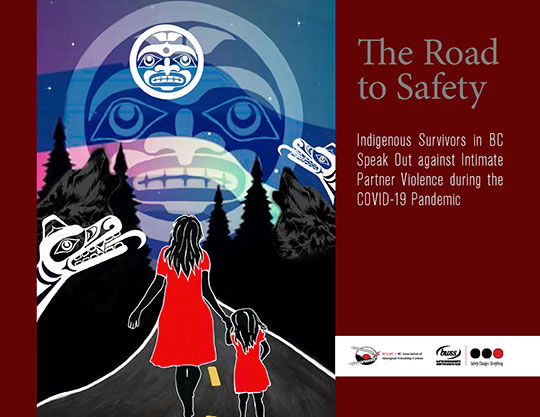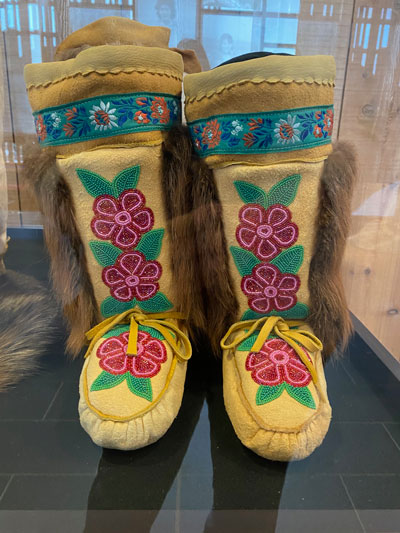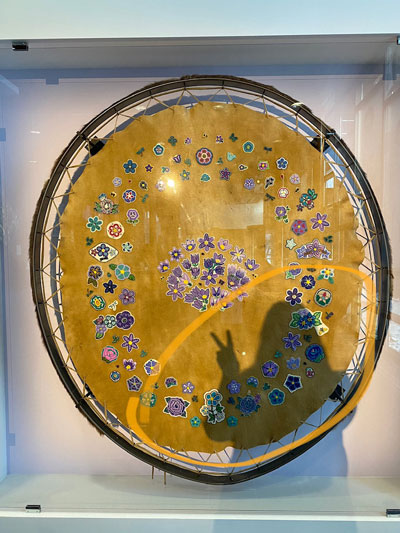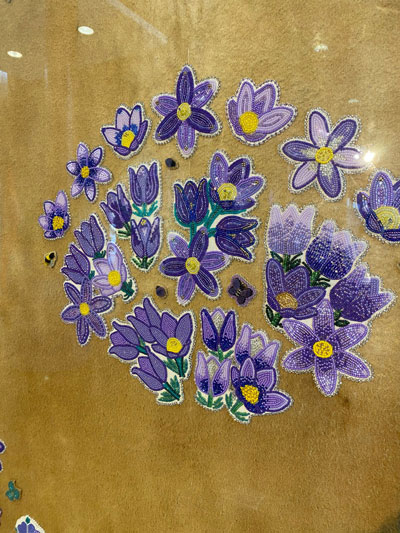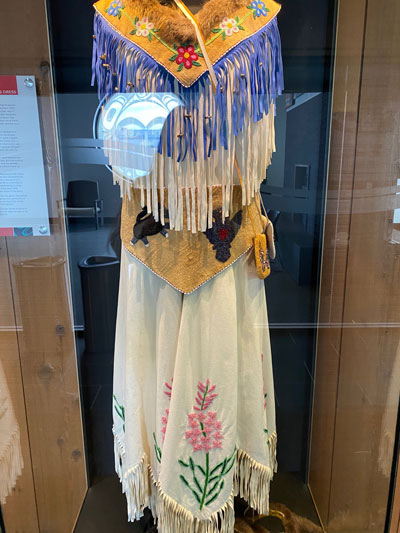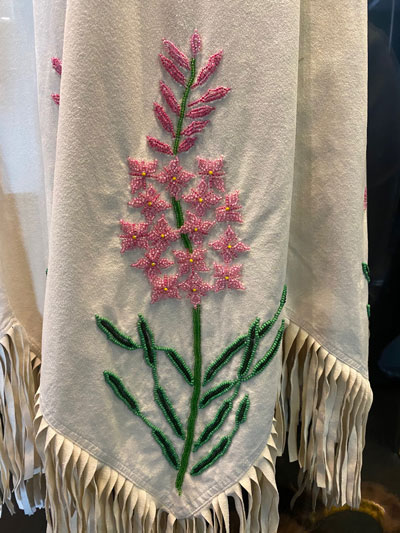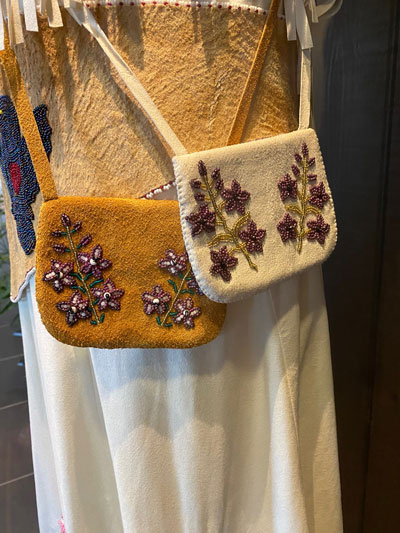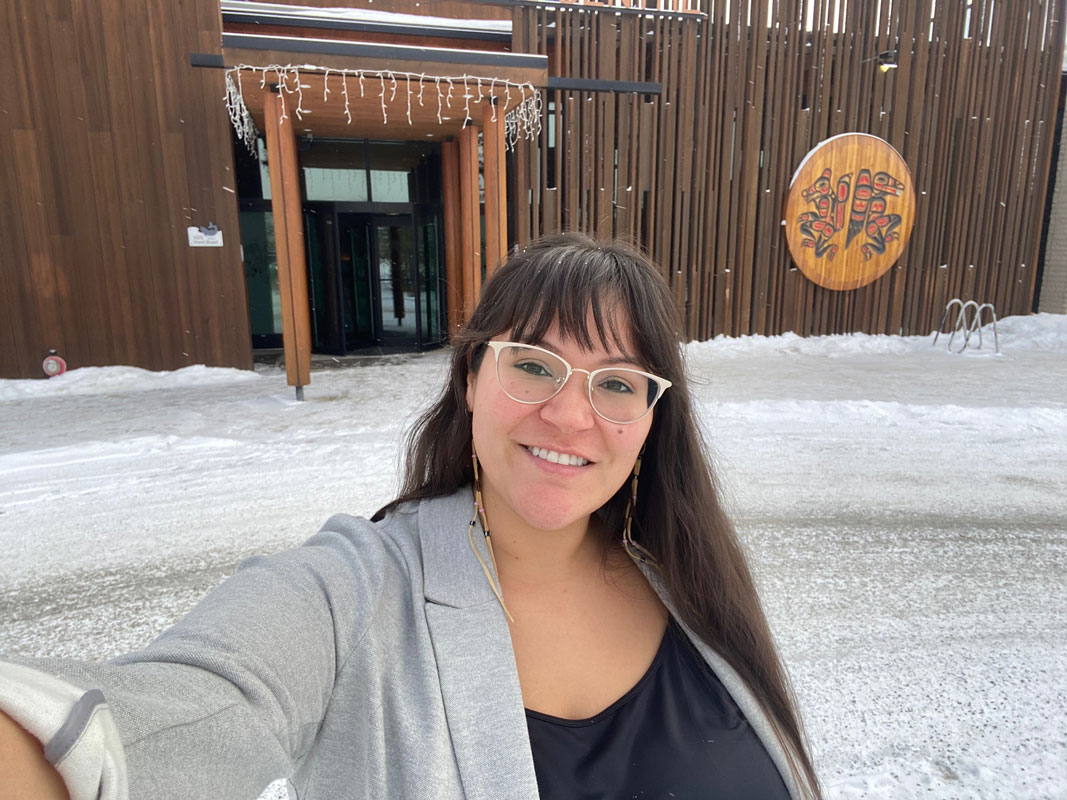
From January 30th to February 2nd, 2023, Kirstin Scansen-Isbister, BWSS Research and Policy Analyst, travelled to Whitehorse, Yukon, located on the traditional territories of the Kwanlin Dün First Nation and the Ta’an Kwäch’än Council, to present at the Exploring Justice: Our Way conference hosted by the Council of Yukon First Nations.
BWSS was honoured to have been invited to share The Road to Safety research report, and to highlight the voices and perspectives of Indigenous survivors of intimate partner violence and gender-based violence in BC.
We thank the Council of Yukon First Nations for the invitation to present our work and attend the Exploring Justice: Our Way conference.
Kirstin presented The Road to Safety: Indigenous Survivors in BC Speak Out against Intimate Partner Violence during the COVID-19 Pandemic, an Indigenous-led research project released by BWSS in the summer of 2022 in collaboration with the BC Association of Aboriginal Friendship Centres (BCAAFC) and the University of Victoria.
BWSS is pleased to partner with BCAAFC on this and many other projects as they are committed to delivering accessible, wraparound services to Indigenous peoples to prevent and end violence, and to help victims of violence and their families heal. BCAAFC has long been working with Indigenous communities to address violence against Indigenous women, girls, and 2SLGBTQQIA+ people.
The Road to Safety exemplifies the commitment of BWSS and BCAAFC to creating space for research that is conducted by Indigenous women and for Indigenous women.
The Road to Safety explores the impact of the COVID-19 pandemic on the experiences that Indigenous women and gender diverse people in BC had with intimate partner violence.
Our researchers surveyed 95 Indigenous survivors of intimate partner violence and conducted in-depth interviews with 10 Indigenous survivors and 18 anti-violence support workers. We express our gratitude to all participants, and in particular to Indigenous survivors who shared their stories with us. We understand that many offered their stories to prevent others from experiencing intimate partner violence and we hope that we have amplified their powerful voices in such a way as to move towards making this vision a reality.
We heard from survivors that the COVID-19 pandemic increased the intensity and severity of intimate partner violence and that support services became increasingly difficult to access during this time. We noted that the pandemic exacerbated pre-existing challenges in support service delivery to survivors of violence in BC and spoke about the need to create culturally safer services within anti-violence organizations and other organizations serving survivors of intimate partner and gender-based violence.
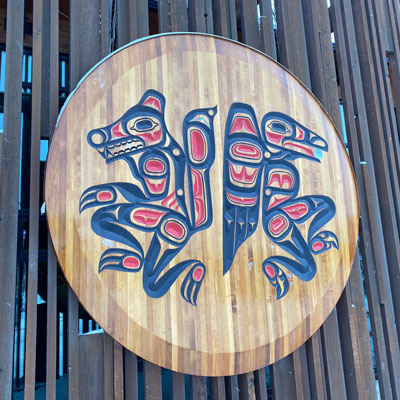
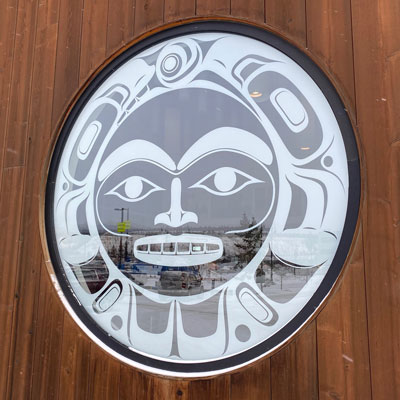
BWSS believes that Indigenous women have been silenced for too long and that justice begins when Indigenous voices are amplified and heard. Kirstin shared report findings and participant recommendations that came from Indigenous survivors themselves, aimed at eliminating intimate partner violence against Indigenous women.
Kirstin spoke about how Indigenous survivors of violence identified the child welfare system, police, and the legal system as key barriers and challenges for Indigenous women fleeing intimate partner violence and gender-based violence. These pillars of gendered colonial violence, and their impact on the lives of Indigenous peoples, were revisited throughout the Exploring Justice: Our Way conference.
The Exploring Justice: Our Way conference centred around the importance of Indigenous jurisdiction over Indigenous justice systems, lands, families, and support services.
The conference brought together Yukon-based Elders, justice teams from the 14 Yukon First Nations represented by the Council of Yukon First Nations, lawyers, judges, victim service workers, members of the Law Society of Yukon, and community members from Whitehorse and neighbouring communities, among others.
One of the recurrent themes of the conference was the need to acknowledge the history of the justice system as a tool of colonialism and the importance of employing a variety of Indigenous justice strategies both inside and outside of existing legal systems as a means of redressing historic injustices and harms towards Indigenous peoples.
Yukon-based conference presenters shared their successes and challenges with applying Indigenous values, laws, and governance systems within Yukon’s legal system. Audience members learned about Yukon First Nation-led initiatives in the justice field, including community impact statements, restorative justice programming, and best practices for Indigenous-led justice strategies.
Conference attendees also heard from the BC First Nations Justice Council, who described the development and implementation of the BC First Nations Justice Strategy.
The BC First Nations Justice Council worked closely with the BC provincial government on the development of the justice strategy, which “brings First Nations and British Columbia into partnership to address poor justice system outcomes for First Nations in BC.”
Track 1 of the BC First Nations Justice Strategy aims to “reform the justice system to be safer and more responsive to Indigenous peoples”, while Track 2 prioritizes the “restoration of First Nations Justice systems, legal traditions, and structures.” Notably, the BC First Nations Justice Strategy also prioritizes the important, ground-breaking work of building Indigenous Justice Centres province-wide, which offer “culturally-appropriate information, advice, support, and representation for Indigenous peoples.”
The BC provincial government formally recognizes and supports the BC First Nations Justice Strategy. Premier David Eby ensured that implementation of BC First Nations Justice Strategy recommendations was included in recently released mandate letters to Mike Farnworth, Minister of Public Safety and Solicitor General, and Attorney General Niki Sharma.
BWSS welcomes changes to BC’s legal system in ways that better support victims of gender-based violence and we are hopeful that the BC First Nations Justice Strategy will improve, and increase supports for Indigenous women and gender-diverse people in BC experiencing intimate partner violence, domestic violence, and gender-based violence.
The Justice Centre at BWSS (formally Legal Services and Advocacy Program)
BWSS is committed to walking with survivors of gender-based violence on their journeys towards justice and healing, and we do so through the Justice Centre at BWSS.
The Justice Centre at BWSS is a community legal program providing legal services and advocacy for self-identifying women and femme survivors of intimate partner violence and gender-based violence.
The Justice Centre at BWSS offers support to women and gender-diverse survivors who are facing the family law, immigration child welfare, civil law, and/or criminal justice systems.
BWSS knows that the legal system can be alienating, intimidating, and re-traumatizing to survivors of gender-based violence seeking justice. This is especially true for Indigenous survivors of violence, who face a legal system that was created to protect and advance colonial interests. Justice Centre legal advocates work closely with Indigenous survivors in a variety of ways, whether that is with obtaining family law protection orders and peace bonds, parenting agreements, and custody orders, among other things.
More information on the Justice Centre at BWSS to follow in the next few weeks.

